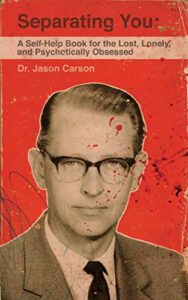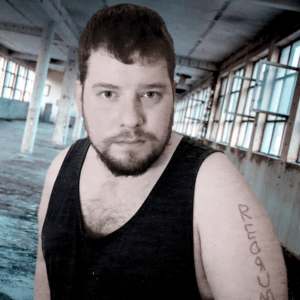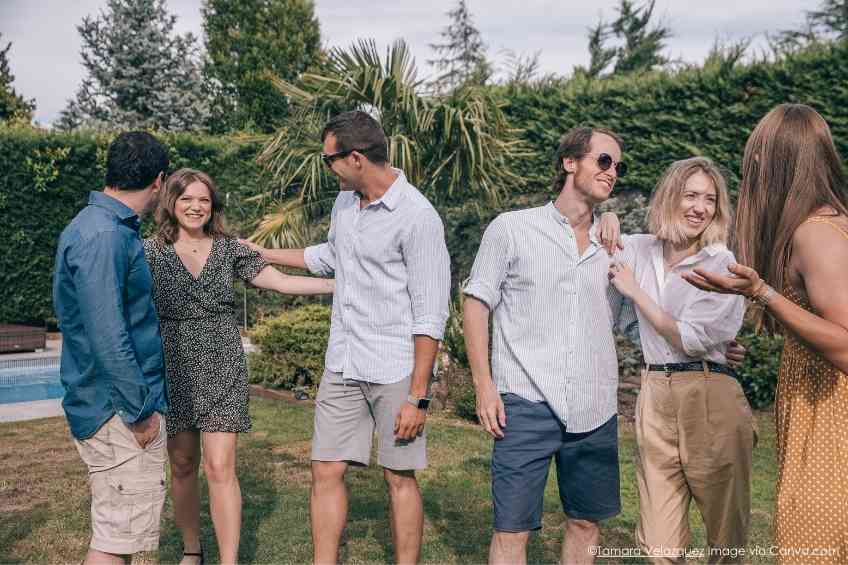Serial killers and self-help. At first glance, the two appear to have little in common beyond popular interest. But there might be more crossover between these topics than initially appears. At least, that’s what John Shupeck aimed to demonstrate with Separating You: A Self-Help Book for the Lost, Lonely, and Psychotically Obsessed. Written from the perspective of fictional serial killer, Jason Carson, the book displays the unexpected parallels between true crime fandom and self-help mania. WellWell recently had Shupeck expand on this surprising connection and all we can learn from it.
Where did the concept of Separating You come from?
It came from multiple things. One was this basic study of the Columbine school shooters I read. It noted that one of them had written a journal with all of his thoughts in it, that’s never all been publicly released in full. But what I could see from the entries that have been released was fascinating. It made me wonder what would happen if a psychopath just put something out like that that he wanted the general public to read. That’s where the seeds for it were planted. I also always loved researching people like that, basically serial killers and psychopaths.
This book represents two very popular segments of interest–true crime serial killers and self-help. Is there an intersection between these fields of interest? Any kind of crossover for why so many people are attracted to them?
Oh absolutely. That was also a very early influence. A long time ago, I was listening to a radio show called Coast To Coast AM and they had a guy on there as a guest that was arguing psychopathy is actually the next step in human evolution. He was actually listing different CEOs of different companies and basically explaining that to get ahead in life, it’s optimal to have a psychopathic mindset. He wasn’t making the argument for violence or anything like that but basically, he was claiming we need to detach ourselves emotionally to get what we want. It was something that really stuck with me, why someone would think like that.
We recently spoke with Easton Blake, the author of How to Behave like a Human Being: A Guidebook for the Corporate Sociopath, which is a satirical look at the corporate structure, following a similar approach to brought to self-help and serial killer obsession. In that conversation he had mentioned how this character was uninterested in how other people felt and that helped him climb the corporate ladder. However, in reality the author believed it was an incredibly empty existence. Do you agree?
Absolutely. A lot of people do not understand that what I’ve created is a fictional character. Which is somewhat understandable because I often act as my character on social media. In that, there’s people always asking me who my favorite serial killer is. Which is an insane question. I’m interested in what makes someone do these horrible things and dissect what may be going on in their head. The psychological angle of it. I’m not sitting here watching John Wayne Gacy interviews all night.
Where do you fall on the scale of nature vs nurture? Do you believe that people like this are born with a lack of empathy or do you think it’s something they develop?
I am actually a Christian, I don’t like to preach anything, but I use the basic idea of ‘we are all evil at birth,’ it’s called ‘total depravity’ but we’re not the most evil we can be. I don’t believe everyone is going to do the most horrible things you could imagine. When I was a kid and I’d steal my mom’s cigarettes, I got a thrill off of doing something I knew I shouldn’t be doing. So, I think we all have that ability to do it and some people just like it too much.
On the other end of the spectrum, why do you think so many people gravitate towards self-help?
I think a lot of people, they don’t know how to behave. They have an idea of how a normal person acts but aren’t sure how to replicate it. So, they gravitate towards self-help books because it’s essentially an outside answer for an internal problem. Not unlike my character Dr. Carson in the book, a lot of self-help authors probably don’t know how to negotiate day to day life themselves. I’m not saying all the people who write self-help books are all like this but many are. It’s honestly psychological manipulation a lot of the time. It’s knowing what makes people happy and feel at ease and exploiting it.
Given that, do you believe it’s a contributing factor towards why so many people gravitate towards serial killers, as well? In a way, do they almost find it relatable that they’re outsiders of society?
Absolutely. That’s why when people contact me and ask me questions like who’s my favorite serial killer, I try to be sensitive to that because I realize these are people who may be clinging on to something. In other words, they don’t just have a general interest in it, they identify it with. That’s also why I need to be very careful with this character and with the book because I don’t want to give anyone the wrong idea.
What’s the wrong idea?
That this is a genuine self-help book. I wrote a horror novel. I wanted to scare people away from serial killers not glorify them.
So, what tangible advice should readers take from Separating You? Is there anything we can learn from this character?
What I did was I write the complete opposite of what human beings should do. This is something to make people feel at ease about a difficult subject. Again, that’s why I call it a horror novel because you’re not supposed to like this protagonist as he refers to himself in the book. You’re not supposed to agree with the things that he’s suggesting someone do or that he’s done.
 About John Shupeck
About John Shupeck
John Shupeck is an author from Fort Myers, FL with nine other books under his belt: Red Town Lost, 12 Nights of Sorry, the Isolation Anthology Volume 1, Hag, US, Lilibeth, Separating You: A Self-Help Book for the Lost, Lonely, and Psychotically Obsessed (written as Dr. Jason Carson), Killing with Don: 50 Reasons to Make America Kill Again (also written as Dr. Jason Carson), and the forthcoming novel, Projection. He spends his time between the United States and Lupon, Davao Oriental, Philippines with his wife, Cherry.
Learn More At www.separatingyou.com













